Financial Instability: Strategies for Survival, Recovery, and Coping
Firstly I am going to discuss the financial crisis the world is going through and later on, I would connect it with Artificial Intelligence writing both the positives and negatives about it.
Thank you for reading this post, don't forget to subscribe!Financial instability can feel overwhelming, but small, consistent steps can make a big difference 😊.
Emergency Fund
First, setting up an emergency fund, ideally with 3 to 6 months of living expenses, is a smart way to secure your future. This fund acts as a cushion for any surprises life throws your way.
Cutting down on Extravaganza
Next, cutting out non-essential expenses and managing necessities wisely helps keep spending in check. Tools like YNAB and Mint can simplify budgeting so you know where every dollar goes.
Get rid of loans with high interest
Also, if you have debt, focusing on paying off high-interest ones first can ease your financial burden.
Side Hustles
Lastly, exploring side gigs or freelance work is a practical way to boost income during tight times. Step by step, you’ll feel more in control and financially resilient! 💸
https://www.consumerfinance.gov/
Bouncing Back from Financial Instability
Rebuilding Your Credit
Your credit history is like a secret passcode to affordable financing. The better your credit, the easier it will be to unlock loans and great deals. It’s all about proving you are trustworthy with money, which makes future borrowing smoother. 🏦
Setting Financial Goals
It’s important to set clear goals to guide your recovery. Start with short-term goals for the next year, then move to medium-term plans for 5 years, and finish with long-term goals for ten years. These will give you direction and keep you focused. 🗺️
Boosting Financial Literacy
Financial literacy is essential. Websites like Income Diary, Investopedia, and The Balance are full of useful information. Plus, taking a few financial literacy courses or even reading blogs on Medium or Blogger or on my websites can change the way you think about and manage money.💡
Coping with Financial Crisis 🌪️
Seek Professional Guidance
When you’re facing a financial storm, consulting a financial advisor can make all the difference. They’re like your personal guide, helping you make smart decisions during tough times.
For example, websites like NerdWallet and SmartAsset offer free tools to connect you with trusted financial advisors who can help you sort through your options or may be Financial ChatGPT could be a hero to rescue you.
Emotional Health
Financial crises can take a heavy toll on your mental health and every individual in life has to come across this phase of life at some point in time. It’s crucial to manage stress. Mindfulness practices like meditation or breathing exercises can help you stay grounded. For deeper support, therapy can make a big difference.
Websites like BetterHelp offer affordable online therapy, making it easier to talk things out and get your mental well-being back on track.
Community Support
You’re not alone in this. There are support groups and online forums where people share experiences and offer advice.
For instance, Quora, other forum websites that are meant for FAQs, Reddit’s r/personal finance is a great place to find others who’ve been through similar struggles. Reading their stories and suggestions can give you valuable insights and show you that recovery is possible!
Path to Financial Freedom and Diversified Income Streams 💸
Achieving Financial Freedom
The journey to financial freedom doesn’t happen overnight, but by taking small, consistent steps, it’s possible! One crucial step is to establish a budget that prioritizes savings and investments. It’s like laying down the foundation of a house, you need a solid base before building anything else. Websites like Mint or You Need a Budget (YNAB) offer budgeting tools that can help you keep track and stay on target.
Reduce Liabilities
Debt can feel like a weight around your neck, pulling you down. So, it’s important to work on eliminating unnecessary liabilities. The less you owe, the more you keep in your pocket. Simple, right?
Websites like Debt.com offer advice and tools for getting rid of debt faster, helping you breathe easier as you move toward freedom.
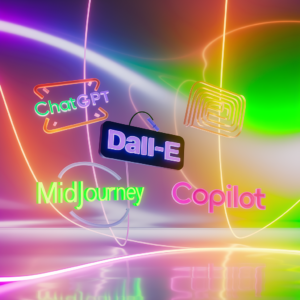
Increase Financial Knowledge
Want to become a money master? Start with learning the habits of successful individuals. Books like “The Millionaire Next Door” or “The Psychology of Money” give valuable insights into how wealthy people think and act. Additionally, you can find free articles of mine and other bloggers and summaries of such books on Goodreads and BookRags to start your learning journey without breaking the bank. 📚
There are Seven Streams of Income
Having just one income source can feel like riding a unicycle or on a pretty risky tightrope!
To secure your financial future, diversify and aim for multiple income streams.
Here are seven to consider:
Earned Income (Job)
Your primary income will likely come from your job, but don’t let it be your only source. It’s like having one tool in your toolbox, you need variety to tackle different challenges, right? According to Forbes, earned income (wages) is the most common form of income for most individuals.
Business Income
Owning a business opens up a world of possibilities for earning. Whether you’re selling a product, offering services, or creating something unique, Shopify and Etsy are great platforms to start generating business income online. Talk about side hustle heaven!
Interest Income
Ever heard of “making your money work for you”? Interest income is a great way to do this by investing in things like savings accounts, bonds, or peer-to-peer lending. Websites like LendingClub and Wealthfront offer platforms where you can start earning interest by lending or investing your money.
Dividend Income
If you’re into stocks, dividend income is your reward for holding shares in companies that pay you a portion of their earnings. Websites like Yahoo Finance and Morningstar are fantastic resources to track which companies offer the best dividends for steady cash flow. 📈
Rental Income
Want to play landlord? Rental income from real estate can be a reliable stream, especially if you’re investing in properties in up-and-coming areas. Platforms like Airbnb and Zillow can help you find the best rental properties to start earning from.
Capital Gains
Capital gains come from the profits you make when selling assets like stocks, bonds, or property. It’s like hitting a home run when you sell something you’ve been holding on to for a while. Investopedia provides easy-to-understand guides on capital gains, so you can get started with investing smartly.
Royalty Income
If you’re a creator, whether it’s writing a book, creating music, or inventing something cool, royalties are your passive income goldmine. Sites like Patreon and YouTube help creators monetize their work, allowing you to earn while you sleep. Talk about making money in your PJs! 😴
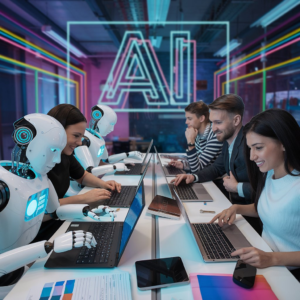
Not all income is created equal. It’s important to understand the difference between active and passive income. Active income, like wages, requires your time and effort, while passive income, like dividends or royalties, lets your money earn while you sleep. As The Balance points out, creating a balance of both is key to financial stability.
Seven Steps to Financial Freedom 🏅
The first step to financial freedom is creating a budget. You need to track every dollar coming in and going out. This helps you understand where your money is going and how to allocate it more effectively.
Once you’ve got a budget in place, the next step is to build an emergency fund. Start small and aim to save enough to cover three to six months of living expenses roughly at least ten percent of the net income must be saved each month. This fund acts as your financial safety net, giving you peace of mind when unexpected expenses come up.
Another crucial step is to eliminate debt, especially high-interest debt like credit cards. Focus on paying off the highest-interest debts first, as this will save you money in the long run.
Investing early and consistently is key to building wealth over time. The power of compounding is real, by starting to invest now, even in small amounts, you can see your money grow significantly over time. Use platforms like Robo-advisors or Vanguard to help you start investing in a way that aligns with your financial goals.
Protecting your assets is another essential step. You never know what life might throw at you, so having insurance for your health, life, and valuable assets is crucial. Websites like Policygenius offer easy ways to compare and buy insurance that suits your needs.
Planning for retirement is a long-term goal, but it’s one you can’t afford to ignore. Take advantage of employer retirement plans like a 401(k) or open an Individual Retirement Account (IRA). Resources like Fidelity can help you understand how to maximize these retirement options to ensure you’re financially secure later in life.
Lastly, reassessing your financial goals regularly is important. Life changes and economic shifts will happen, so it’s essential to adjust your goals as you go. Whether it’s a job change or a shift in the market, reviewing and revising your financial plan helps you stay on track to achieve your freedom. Besides, Personal Capital is a great tool for helping you monitor your financial progress and make necessary adjustments.

Positive and Negative Impacts of AI on Jobs 🤖
Positive Impacts of AI on Jobs
AI is like a supercharged assistant that can handle routine tasks, making work more efficient. For example, AI-powered tools like Zapier and Trello help automate simple processes, freeing up employees or entrepreneurs to focus on strategic, high-level tasks that require creativity and problem-solving. This means less time spent on mundane work, and more time spent on achieving short term and long term goals.
One of the coolest benefits of AI is its role in skill diversification. As AI continues to evolve, employees are encouraged to learn new technologies and acquire skills that complement automation. Take data analysis or AI programming, these fields are booming because they require human expertise to work alongside AI systems.
Platforms like Coursera and edX offer courses to help individuals learn AI-related skills, which can open doors to higher-paying, more specialized roles.
Moreover, AI-driven industries are creating jobs. The rise of AI in tech, data analysis, and cybersecurity means more demand for experts in these fields. Furthermore, companies like Palantir and CrowdStrike are at the forefront of AI-driven industries, and they are constantly hiring experts to develop, maintain, and secure AI systems.
Negative Impacts of AI on Employment
On the flip side, AI isn’t all sunshine and rainbows when it comes to employment. One major downside is job displacement. As automation takes over repetitive, manual tasks, many traditional jobs, like assembly line workers or data entry clerks, are at risk of becoming obsolete.
A real-world example is Amazon’s use of robots in warehouses, which has replaced many manual labor jobs with automated systems. While this boosts efficiency, it also raises concerns about job loss.
Another downside is the skills gap. With AI taking over more routine tasks, there’s a growing demand for advanced technical skills. This creates a divide between those who can keep up with technological advances and those who can’t.
For instance, the increasing demand for AI engineers and data scientists can leave behind workers in roles that are more easily automated, creating job displacement for those without specialized skills.
Finally, AI can lead to reduced human interaction in jobs that traditionally relied on personal engagement. In fields like customer service or healthcare, AI chatbots and virtual assistants are stepping in to handle tasks like answering questions or diagnosing simple conditions.
While AI tools like ChatGPT are great for streamlining tasks, they can’t replace the human touch that many customers or patients seek, leading to a loss of personalized service.
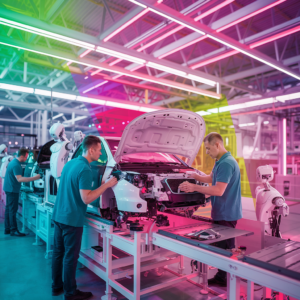
How AI Relates to Financial Freedom and Income Streams
Now, let’s tie AI into financial freedom and income streams! 💸 AI is changing the way we make money, from how we earn to how we invest.
For example, AI-driven tools can help you create a budget by analyzing your spending habits and offering personalized advice. Apps like Mint use AI to categorize your expenses and even suggest ways to save, helping you stay on track to meet your financial goals.
When it comes to building an emergency fund, AI can help you automate savings by setting up recurring transfers from your main account to a separate savings account. Some fintech apps like Qapital use AI to analyze your spending patterns and automatically move small amounts of money into savings without you having to think about it.
AI also plays a huge role in investing. Robo-advisors like Betterment and Wealthfront use AI to manage your investments, making it easier for you to invest early and consistently without being an expert. These platforms analyze market trends, risk tolerance, and financial goals to create a tailored investment strategy that leverages the power of compounding.
In terms of eliminating debt, AI-driven tools like Tally and Mit can help you keep track of your debts, prioritize high-interest ones, and even offer strategies to pay them off faster. These tools take the guesswork out of managing debt, which helps you stay focused on your financial goals.
AI is also transforming business income by making it easier to run and scale online businesses.
For example, AI can help automate customer service through chatbots, improve marketing strategies with predictive analytics, and optimize inventory management. Tools like Shopify’s AI-powered analytics allow e-commerce business owners to make smarter decisions about what products to stock and how to price them.
So, while AI might change the job landscape, it’s also opening new doors for income generation and financial freedom. Whether it’s saving time with automated tasks, enhancing investment strategies, or helping you build a business, AI can be a powerful ally in your journey to financial success. 😎
AI’s Future, Emotions, Ethics, and Job Market Transformation 🌍
Future Prospects and Surprises of AI
AI is advancing faster than we ever thought possible, and it’s not just about automating tasks anymore. I would say take large language models like GPT-4, which can generate human-like text with remarkable accuracy. These models have taken us beyond simple responses and are now engaging in creative tasks like writing stories, poems, and even scripts!
However, this progress has sparked debates about creativity. If AI can write just as well (or better) than humans, what does that mean for jobs in writing, marketing, and beyond? With AI becoming more capable every day, some worry that it could outpace human creativity, while others argue it will be a tool that enhances human work, not replaces it.
I agree with the latter that it will be a tool that improves human work while not replacing it.
AI and Emotions
Understanding human emotions is something AI still struggles with as it can only act and cannot show true feelings as it is Artificial, not Real. Sure, AI can simulate empathy, and take virtual assistants like Siri or Alexa, but they can only mimic emotional responses based on programmed algorithms. They don’t feel emotions like humans do.
For example, while these AI systems can tell you that “everything will be okay,” they can’t truly feel empathy or comprehend the complex layers of human emotions. This raises an interesting challenge. Can AI ever truly understand the depth of human experience, or is it limited to responding based on data without ever truly “getting it”?
This gap between simulated empathy and genuine emotional understanding is where AI still has a long way to go. 🙁
Ethical Considerations in AI Development
Conversely, the ethics behind AI development are crucial, especially as AI systems become more integrated into our daily lives. One key issue is data privacy, how much of our personal information is AI allowed to access?
For example, when you use AI to get recommendations on Netflix or check out ads on social media, AI is learning your preferences. But who’s keeping track of this data, and how is it being used?
Another concern is bias in algorithms. If an AI model is trained on biased data, it can perpetuate those biases, leading to unfair decisions. For example, AI in hiring tools might unintentionally favor certain demographics over others.
Ensuring accountability for AI decisions is another hot topic. Should AI be responsible for its actions, or should the developers be held accountable? As we continue to push AI’s boundaries, the importance of fairness, transparency, and minimizing harm in its development becomes even clearer.
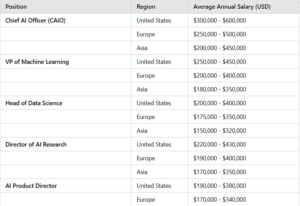
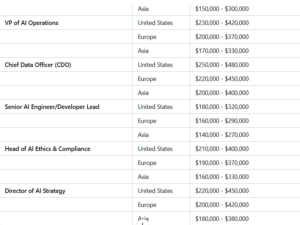
AI’s Influence on the Job Market in the Next Decade
So guys let your fingers be crossed as the job market is transforming, and AI is at the heart of it. In the next decade, there’s going to be a growing demand for technical skills, particularly in fields like AI development, data science, and machine learning. People with these skills will be in high demand as more industries integrate AI into their operations.
For instance, AI engineers and data analysts will play a central role in shaping AI tools and algorithms for everything from healthcare to finance. However, some traditional jobs, particularly those involving routine or repetitive tasks, may face reduced demand. Like, data entry and assembly line jobs are more likely to be automated by AI, which could lead to job displacement for people in those roles.
This is where upskilling initiatives come into play. Governments, companies, and educational platforms are already investing in programs to help workers retrain and transition into new careers. Coursera and Udemy are two platforms offering online courses that help people gain skills in AI and related fields, ensuring that they remain competitive in the evolving job market.
The next decade will likely be a period of both challenges and opportunities, where AI reshapes the way we work, learn, and live. So, staying ahead of the curve will be key for those looking to thrive in this ever-changing landscape.
Future of Jobs and AI 🚀
Let’s talk about jobs. Yes, some roles might be replaced by AI, like the cashier at your local grocery store (sorry, Bob), but on the bright side, new roles will pop up. By 2025, according to the World Economic Forum, we could lose 85 million jobs to automation, but guess what? We’ll gain 97 million new roles, many of them in AI maintenance, data science, and creative fields.
So, don’t panic. It’s all about reskilling. Want to stay ahead? Start focusing on roles that require your human creativity and empathy, things AI can’t really replicate as yet. Like, you’re still much better at handling a crying baby than any robot, right? 😆
Life is all about transition as we are not trees. 🌳
Exciting AI Applications and Potential Roles 🚀🤖
Exciting Applications of AI
AI is revolutionizing industries, especially healthcare for you guys. Imagine a world where AI is used in drug discovery, helping researchers identify potential treatments much faster. IBM Watson Health is already working on this, using AI to analyze medical data and assist in the discovery of new therapies.
Further, AI’s ability to process vast amounts of data can also improve diagnostics, enabling earlier detection of diseases like cancer. Personalized medicine is another area where AI shows promise, tailoring treatments to individual patients based on their unique genetic makeup. With these advancements, AI has the potential to drastically improve health outcomes and save lives.
AI as a Personal Assistant
Did you ever wish you had a personal assistant to handle your repetitive tasks? Well, AI is here to help! From scheduling meetings to data analysis and even customer support, AI can take over these time-consuming tasks.
For instance, AI-powered assistants like Google Assistant or Microsoft’s Cortana can schedule your appointments, remind you of deadlines, and even answer emails. Hence, by outsourcing these chores to AI, professionals can focus on more creative and strategic responsibilities, boosting productivity and allowing them to do what truly matters in their work.
AI’s Role in Enhancing or Stifling Creativity
AI is a bit of a double-edged sword when it comes to creativity. On the one hand, AI can be a powerful creative tool. Platforms like DALL-E and DeepArt use AI to create stunning visuals, turning words into beautiful art. For writers and creatives like me, AI can serve as a source of inspiration, generating ideas and offering new perspectives.
However, there’s a catch. Overreliance on AI for creative tasks might lead to a reduction in human-driven creativity. If AI takes over too much of the ideation process, we may lose the deeper, more emotional layers that human creativity brings to the table. I must say that balancing AI’s potential with human touch is key to ensuring that creativity thrives.
AI in Education, Decision-Making, and Public Misconceptions 🎓💡
Role of AI in Education
In education, AI is making waves by customizing learning experiences to suit individual student needs. Adaptive learning platforms like Smart Sparrow or DreamBox offer personalized progress tracking, helping students get the assistance they need in real time.
Also, AI can help educators by automating grading and providing insights into students’ performance, enabling them to focus more on teaching rather than administrative tasks. This can create a more inclusive and efficient learning environment for students everywhere.
Personalized learning platforms are using AI to tailor lessons to students’ individual needs, making education feel less like a one-size-fits-all experience and more like, “Hey, this works for me!”
AI in Critical Decisions (Healthcare)
In critical areas like healthcare, AI can be a helpful assistant but should never replace human judgment. For example, AI in healthcare diagnostics can analyze medical images and provide suggestions to doctors, potentially identifying issues that might have been missed. However, a doctor’s expertise is still essential in making the final decision.
Common AI Misconceptions
One of the most common misconceptions about AI is that it possesses autonomous intelligence, similar to human cognition. The idea that AI has its thoughts, emotions, or consciousness is simply not true. In reality, AI operates on pre-programmed patterns and algorithms, processing data to deliver outcomes based on those patterns.
Take ChatGPT, for example. It can generate human-like text, but it doesn’t “think” or have its intentions, it’s simply following the patterns it has been trained on. Understanding this distinction is important as AI continues to evolve, so people don’t mistakenly think it has human-like awareness.
Coexisting Harmoniously with AI 🤖
Human-AI Harmony
When it comes to AI, collaboration is the key, not competition. Think of AI as your trusty sidekick, helping you out when you need it but always under your supervision. The goal isn’t to replace human skills but to enhance them.
For example, in healthcare or even for trading in stocks, AI can analyzel data faster, but human beings make the final call. So, instead of AI taking over, it complements human expertise, creating a powerful partnership that drives success.
Think about it: AI’s perfect for handling the boring stuff, but it can’t exactly dream up that next big idea or tell a joke that’ll make you laugh until you cry. That’s where human-AI collaboration comes in. You get to focus on the cool, creative stuff while AI handles the routine. So, get ready to be the creative genius you were always meant to be, AI is just there to take the load off. I hope now you got my point.🧠
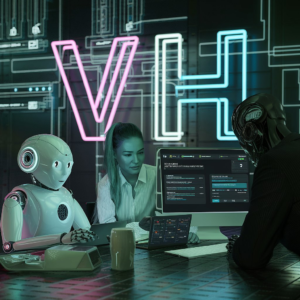
Questions for AI’s Own Perspective
Here’s a fun thought: if AI could answer for itself, would it understand human consciousness? 🤔 AI can process data and generate human-like responses, but it doesn’t feel or experience things the way we do. It’s built to follow patterns, not to think like us.
A cool example? GPT can write text, but it doesn’t truly understand the words it generates! So jst imagine AI writing the script but does not get it to understand itself how funny this could be!
Exciting AI Technologies and Future Possibilities
Some of the most exciting AI technologies are generative models like GPT, Ideogram, etc.. These tools have come a long way, creating everything from realistic images to music. They’re already making waves in areas like art and journalism, showing that AI is more than just a tool for routine tasks, no doubt it’s a creative powerhouse. AI’s ability to generate content is changing the game, but it still needs human guidance to make sure things stay meaningful.
So be rest assured noting could dominate the human mind.
Global Impact of AI 🚀
AI’s reach is global, impacting industries worldwide by boosting efficiency and opening up new opportunities. For example, in healthcare, AI is helping doctors make faster diagnoses, potentially saving lives. According to the World Economic Forum, AI could add $15.7 trillion to the global economy by 2030 through its ability to enhance productivity across multiple sectors. So, while you and I are focusing on our personal financial goals, remember, AI is also shaping the future of economies worldwide to counter economic slump.
Industry Transformation by AI
AI is expected to transform major industries, particularly healthcare, finance, and transportation. Take finance as an example: AI is helping detect fraud by analyzing transaction patterns in real-time. It’s also optimizing routes in transportation, making logistics more efficient and reducing costs. AI’s ability to handle complex data is pushing these industries forward, making processes safer and faster for everyone.
Industries Most Affected by AI
Healthcare 🏥
Let’s start with healthcare. AI is revolutionizing how doctors diagnose and treat patients. For instance, AI-powered diagnostics are helping doctors detect diseases like cancer earlier than ever before. A prime example is IBM Watson Health, which analyzes medical data to recommend personalized treatment plans. Moreover, AI is speeding up drug discovery, potentially bringing life-saving medicines to market faster. So, when you think about the future of healthcare, it’s clear that AI is a game-changer, making it more accurate and efficient.
Predictive healthcare diagnostics are making it easier to spot diseases before they even show symptoms, like breast cancer, talk about being proactive!
Finance 💰
Next up is the finance industry. AI is all over this space, and it’s shaking things up in some serious ways. Like fraud detection is one area where AI shines. Banks like HSBC are using AI to monitor transactions in real time, identifying suspicious patterns before they lead to losses. AI is also behind algorithmic trading, which uses complex algorithms to make trades faster than humans could ever manage. So, when it comes to managing risk or optimizing your financial strategy, AI is making those processes more precise and quicker than ever.
Fraud detection in finance is helping banks spot shady transactions before your account gets cleaned out.
Manufacturing 🏭
Now, manufacturing is another sector where AI is stepping in with a bang. Think automation, robots are doing a lot of the repetitive tasks that humans used to do. Tesla, for instance, uses AI-powered robots in its factories to assemble cars more efficiently. AI is also improving predictive maintenance by analyzing machine data to spot potential issues before they break down and this is of particular importance for aircrafts. This means less downtime and fewer unexpected costs.
So It’s clear,AI is making manufacturing smarter, faster, and more reliable, isn’t it?
Transportation 🚗
Finally, let’s discuss about transportation. When you hear “autonomous vehicles,” you’re probably thinking about self-driving cars. Companies like Waymo , Google’s self-driving car project are already using AI to develop cars that can drive themselves. But AI doesn’t just stop there, it’s also helping optimize logistics.
Take Uber Freight for example, which uses AI to match truck drivers with loads in real time, making the entire process more efficient. So, in transportation, AI is not just changing how we get from point A to point B but also how goods move around the world.
Autonomous vehicles like Tesla are out there driving themselves yup, we’re that close to robot drivers.
AI’s Influence on Daily Life Today
AI is already part of our everyday routine, often without us even realizing it. Take online shopping for example. Ever noticed how Amazon knows exactly what you might want to buy next? That’s AI working its magic with personalized recommendations. Or, when you’re binge-watching your favorite shows on Netflix, and it just knows the perfect next episode to suggest, yep, that’s AI again!
Even navigation apps like Google Maps use AI to help you avoid traffic jams and get to your destination faster. And don’t get me started on smart home devices! From controlling your lights with just your voice to asking Alexa what the weather is like (now please don’t pretend you haven’t done it!), AI is making our lives way smoother. It’s like a digital butler, but cooler and less judgmental. 😉
How AI Will Change Daily Life ⏳
Looking ahead, AI is going to take over more of our boring tasks. Imagine having a smart fridge that knows when you’re low on groceries and orders them for you. AI might even get into your healthcare routine, sending reminders for checkups or suggesting healthier habits based on your daily patterns.
For those of us who struggle to manage finances ,guilty as charged, AI could help track spending and suggest saving habits that actually stick. It’s like having a personal assistant that handles all the grunt work so you can focus on the good stuff, like maybe getting a house constructed for yourself.
See? AI is here to stay, and it’s making life easier, smarter, and even a little more fun. Stay tuned, because we’re just scratching the surface. 🎉
AI in the Art World 🎨
AI is shaking up the art world in a big way. Artists are now using machine learning algorithms to create entirely new forms of art. To elaborate I must say, Generative Adversarial Networks (GANs) are used to generate stunning new visuals, while neural style transfer allows artists to merge their works with the styles of famous painters. This fusion of art and AI is stirring up debates about creativity, originality, and authorship.
The “Edmond de Belamy” painting, created by an AI system, made headlines when it sold for a whopping $432,500 in New York on 25 October 2018. Who knew a robot could be such a high-stakes artist?
AI and Music Composition 🎶
Just like in art, AI is also diving into the world of music. Programs like OpenAI’s MuseNet can compose intricate musical pieces across multiple genres. From classical to jazz, it’s exploring new musical realms and showing that AI isn’t just crunching numbers,it’s got rhythm, too!
Creativity, AI, and Surprises 🤯
Now, there’s some concern that AI could put a cap on human creativity. Will robots take over our artistic jobs? Well, not quite. Think of AI as a creative partner. Rather than stealing your thunder, it can assist in idea generation. If you need a fresh design or a melody that’s a bit out there? AI can help you brainstorm ideas and offer surprising patterns that humans might never think of on their own. It’s like having a digital muse that doesn’t need coffee breaks, so true!
Impact on Creativity 💡
AI is not here to steal creativity; instead, it’s here to augment and innovate. Imagine having a brainstorming partner who’s always ready to help you explore new possibilities. AI can do just that, offering fresh perspectives that spark your creativity. Whether you’re an artist, musician, or writer, AI can suggest ideas you might never have thought of on your own. It’s like having an endless supply of inspiration without the creative block!
Beyond just helping with ideas, AI can drive innovation in truly surprising ways. By analyzing vast amounts of data, AI can spot patterns and connections that we humans might miss. These insights can lead to new approaches in art, audit, music, or literature, things that push boundaries and challenge traditional norms. It’s like a digital muse that not only inspires but also opens doors to new creative realms. So, rather than limiting creativity, AI is expanding its horizons, making it more exciting than ever before! I think I made my point clear to you.
AI Annual Salary and Job Market 💼
AI roles are some of the highest-paying jobs in the tech industry. For instance, AI engineers in the U.S. earn an average annual salary of over $110,000. However, top earners in specialized positions, such as AI researchers and machine learning engineers, can earn significantly more. So, if you’re diving into AI, you’re looking at a pretty lucrative career path.
The demand for AI professionals is growing rapidly across various industries like healthcare, finance, e-commerce, and automotive. With AI’s reach expanding, opportunities are popping up everywhere. From technical roles to AI ethicists and project managers, companies need experts who can handle both the technology and the responsibility behind it.
AI Jobs and Skills to Stand Out
To land a top AI job, you’ll need to have a solid grasp of programming languages like Python and R. These are essential tools in your AI toolbox. Beyond coding, knowledge of machine learning frameworks like TensorFlow and PyTorch is highly valued. As AI becomes more integrated into our lives, understanding the ethics behind it, as well as data privacy regulations, is also crucial for many positions.
The AI job market isn’t just about technical prowess while there’s an increasing demand for professionals who can ensure AI is developed and used responsibly. Whether you’re working as a data scientist, AI engineer, or even an AI ethicist, there’s no shortage of high-paying, meaningful roles in the field. With the right mix of technical and ethical skills, the possibilities are endless.
Countries Leading in AI Adoption 🌍
Countries around the world are adopting AI in different ways, each focusing on areas that match their economic and social priorities. Likewise, the United States leads with AI applications in healthcare, finance, and e-commerce, where algorithms power everything from diagnostics to personalized shopping. China, on the other hand, utilizes AI extensively in surveillance, social services, and manufacturing, establishing itself as a powerhouse in AI-driven production and public management.
Whereas in Japan, AI is at the forefront of robotics, playing a crucial role in elder care and industrial automation,an essential move in a society with an aging population. Meanwhile, the United Kingdom is advancing in healthcare, smart city development, and ethical AI research, actively pushing for a balance between technological progress and responsible usage, that’s super cool!
The Role of the World Economic Forum (WEF) in AI
The World Economic Forum (WEF) has been a key player in discussing and guiding AI’s global impact. Through initiatives like the Global AI Council, the WEF focuses on promoting AI that benefits economies while adhering to ethical standards. Their advocacy includes supporting human-centered AI development, pushing for fair job market transformations, and emphasizing AI applications that drive inclusivity and ethical innovation worldwide. By examining AI’s societal and economic impacts, the WEF helps shape a global approach that benefits all.
Conclusion
AI is changing a lot about the world we know—our jobs, our art, and even the way we handle daily tasks lets embrace this change together seamlessly. Because here’s the thing: AI isn’t here to replace us; it’s here to work *with* us. Yes, it’ll take on some repetitive jobs and even challenge some traditional roles. But it will also open doors to new opportunities and help us focus on more creative, human-driven work.
With any powerful tool, balance is key. We wouldl need to keep up by learning new skills and embracing transition decently. And, of course, we should guide AI in a way that respects privacy, fairness, and inclusivity. This way, we make sure it becomes a partner that helps us grow rather than something that takes away our place.
In the end, AI is something we can shape. With a little flexibility, curiosity, and optimism, we can build a future where AI brings out the best in us. 🌈 So, let’s step into this new era together,one where we are empowered, connected, and still very much human.
Some links in this blog are affiliate links, meaning that at no additional cost to you, I may earn a commission if you make a purchase through these links. I only recommend products and services that I believe will add value to my readers.
